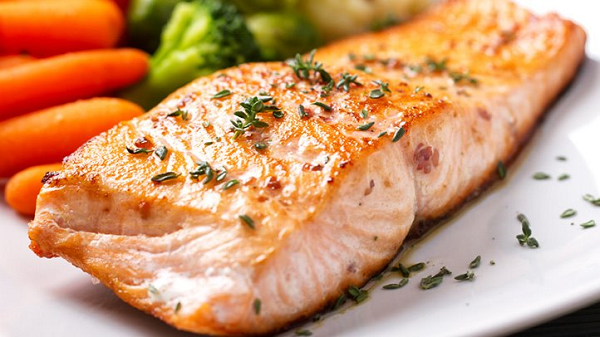The Mediterranean Diet : it's FETA-tastic!
What if you could find a diet that lowers your cholesterol, blood pressure and risk of heart disease, while at the same time, helps you to lose weight? Why, it’s the Mediterranean Diet, a plant-forward, healthy eating pattern based on the traditional cuisines of Greece, Italy and other countries which border the Mediterranean Sea.
Although there is no structured diet plan, the Mediterranean style of eating puts plants in the center of the plate and limits the consumption of animal foods. “Yes, absolutely. Any diet that is rich in fruits and vegetables may play a role in prevention and treatment of certain diseases,” said Amber Parkonin MS, RD, LMNT, an award-winning nutritional educator, personal chef and podcaster in Lincoln, Nebraska. “The Mediterranean diet specifically encourages fruits, vegetables, whole grains, legumes, seafood and healthy fat sources. Many of these foods are high in antioxidants, fiber, and heart-healthy fats which can play a role in cancer prevention, digestive health, brain health and heart health.”
Interest in the Mediterranean diet began in the 1950’s when numerous studies confirmed that the percentage of heart disease was lower in the Mediterranean countries as compared to the United States. Since then, more research has shown that those who follow the Mediterranean diet are less likely to develop high blood pressure, kidney disease and breast cancer, as well as, lower their risk of a major heart attack, stroke or death.
With its diverse flavor, the Mediterranean diet emphasizes nutrient-dense foods and healthy fats, particularly extra virgin olive oil. Considered as the primary source of added fat in the Mediterranean style of eating, olive oil provides monounsaturated fat which lowers the total cholesterol and low-density lipoproteins (LDL) often referred to as the bad cholesterol. The addition of berries, dark green leafy vegetables, nuts, beans and legumes are considered brain foods for the Mediterranean-style diet.
Choose from the following foods recommended for the Mediterranean diet:
Plentiful amounts of vegetables, fruits, nuts, seeds, legumes, potatoes, whole grains, herbs, spices, fish, seafood, and extra virgin olive oil
Moderate consumption of poultry, eggs, cheese and yogurt
Rarely consume: red meat, sugar-sweetened beverages, added sugars, processed meats, refined grains, refined oils, and other highly processed foods.
Lentils at Lunch
Add onions, bone broth and turkey sausage
Nuts and seeds are encouraged because they contain monounsaturated fats. Fish and seafood are recommended twice per week. This Mediterranean style of eating has become more attractive because it is versatile, attainable and realistic to follow when trying to watch your waistline. “I do think the Mediterranean diet is easier to follow because it offers a lot of options and it doesn’t eliminate foods,” said Parkonin, a Dietitian and Recipe Developer who was named the 2021 Outstanding Dietitian of the Year by the Nebraska Academy of Nutrition and Dietetics. “Yes, I do recommend this diet to my audience for several reasons. It offers a lot of great nutrition and many recommended foods which can easily be found in your local grocery store. Also, contrary to other diet plans, wine in moderation is included in the Mediterranean diet.
So, if you’re looking for a healthy diet plan including goals of weight loss and proper nutrition, you may want to try eating like a Mediterranean with the emphasis on green leafy vegetables, heart-healthy proteins and daily cooking with extra virgin olive oil.







